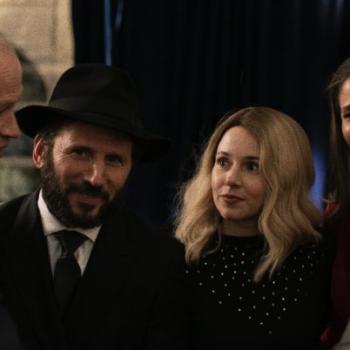 By Jonathan Brown
By Jonathan Brown
Controversy over the supposed "Ground Zero Mosque" in New York City reveals a great deal about the tenuous place of Muslims in American public space. Of course, the plans to build this Muslim community center would probably have caused little uproar were we not in an election year and was this not such a facile ladle with which to stir the pot of public emotion. That issues involving Islam and the continued association of that religion with terrorism are such reliable touchstones of outrage, however, alarms me more than the immediate furor specifically generated around the New York community center.
I would like to examine some of the rhetoric surrounding this controversy in order point out some of the assumptions and inconsistencies that characterize opposition to the Cordoba initiative. Doing so reveals a great deal about what prominent voices in American public life expect from Muslims, and what they expect the future of Islam to be.
Complaint: "There is a problem with Islam." -- I cannot count how many times non-Muslim students have come to my office and asked me if Islam is a "valid" religion. The only response I have been able to offer has been that, if a religion has flourished for over 1,400 years from Senegal to Malaysia and today counts more than 1.3 billion adherents, then I think it has a strong claim to sit at the table of valid world religions. More importantly, the fact that these 1.3 billion human beings lead their daily lives as farmers, lawyers, businessmen, bike couriers, carpenters, professors, homemakers, etc., while identifying as Muslims means that there is nothing wrong with Islam.
Are these people monsters? Do they walk around perpetrating acts of evil or cruelty on an hourly or even biweekly basis? Do they ponder moral issues, questions of life, love, friendship, and employment, and then suddenly do the "wrong thing" because they are Muslim? If we take a statistically significant group of these Muslims and put them next to a similar group of Americans, Christians, Japanese, or Zulus, do we notice that the Muslims are morally or judgmentally inferior? The simple fact of the matter is that the Muslim world is so broad, so diverse, and so internally divided -- as is to be expected in the case of any group of 1.3 billion humans -- that beyond the incredibly vague moniker of "Muslim" they have no more in common with one another than they do with "non-Muslims." There is no common element binding all these 1.3 billion people that we could identify as "wrong" if we were trying to point out some problem with Islam.
Complaint: "Islam is violent/preaches violence." -- This question is closely related to the previous point. Certainly, some verses of the Quran address violence, "fighting in the path of God," and fighting and slaying God's enemies. So does the Old Testament and the Bhagavad-Gita. The practitioners of a religion, however, are the ones who have the right to determine what its sacred texts teach, not outside critics. Believers in these sacred texts can and have decided that verses seeming to advocate violence are figurative, that they were superseded by some less violent verse, or they could simply never act on that commandment. For an outside critic to indict that religion because its sacred text includes violent verses would thus be ingenuous polemics. Is this critic really interested in changing the lives of the practitioners of this faith for the better? Or is he or she merely engaged in a game of religious ‘gotcha'?
Furthermore, I wonder what critics of violent verses in the Quran expect Muslims to do. Do they expect Muslim scholars worldwide to gather and agree to remove or disavow the verses? The Quran was compiled around the year 650 C.E., and, apart from minor changes in vowelling, has remained unchanged since the early 700s C.E. The historical intactness of the Quran and the belief that it represents the literal word of God are, in fact, the foundations of Islam as a faith. Or do they expect Muslims to interpret these verses in ways other than as a mandate for violence against unbelievers? Yet, this is exactly what the stunning preponderance of Muslims already do.
The fact of the matter is that Islam does not cause violence or terrorism. Let us try to estimate the total number of Muslims terrorists worldwide (Muslims engaged in planning and carrying out acts of violence against civilian targets). Let us add all the Taliban fighters in Afghanistan (one 2009 estimate has it at around 25,000). Let us guess the total number as 400,000 people. Out of 1.3 billion Muslims worldwide, even this high estimate would mean that only 0.03 percent of Muslims are "terrorists." In 2007, the FBI reported that 1,408,337 violent crimes were committed in the United States. Even if we assume that each violent offender committed three offenses in that year, that would still mean that out of a population of 300 million, in the aggregate 0.15 percent of Americans are violent criminals!




